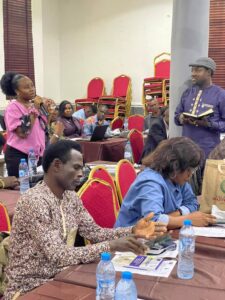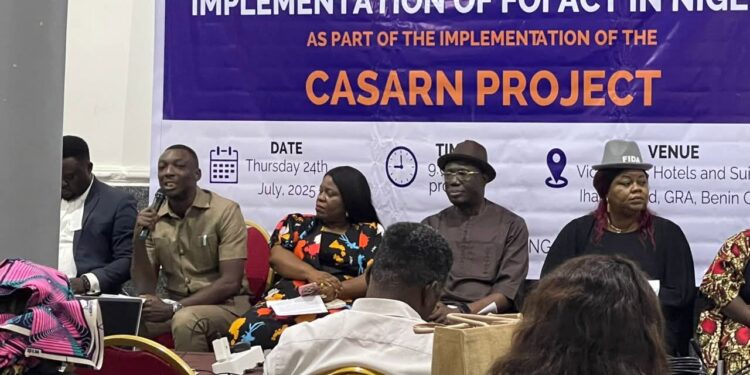
Civil Society Organizations, CSO’s have commended the Supreme Court Ruling affirming that the freedom of Information, FOI Act applies to all tiers of government, just as the Edo State Government declares commitment to transparency and public accountability reforms.
The Executive Director, Africa Network for Environment and Economic Justice, ANEEJ, Rev. David Ugolor said the land mark ruling by the Supreme Court on April 11, 2025 is not only timely, but transformative as it laid to rest all controversies regarding the applicability of FOI Act to sub-national government and provided a renewed legal foundation upon which to test the applicability of the legislation in accessing information from public institutions and some category of private organizations.
The ANEEJ Executive Director who was represented by the Deputy Executive Director of ANEEJ, Comrade Leo Atakpu during the Strategy meeting on the implementation of the FOI Act in Nigeria, held in Benin City, disclosed that since it’s passage in 2021, the FOI Act presented a great opportunity to expand access to information in Nigeria.
According to him, “the implementation has not been without challenges as many states resisted FOI requests made by civil society Organizations and other interest groups insisting that the FOI Act was only applicable to federal MDA’s since it was passed by the National Assembly.
“Challenges such as a culture of secrecy in public institutions, poor record keeping, limited citizen awareness and weak enforcement continue to hinder it’s effective implementation.
“This strategy meeting is organized as part of the implementation of the Civil Society Advocacy to Strengthen Anti-Corruption Reforms in Nigeria (CASARN) project. ANEEJ is working with the Rule of Law and Anti-Corruption (RoLAC II) Programme to implement the CASARN project.
” The RoLAC II is implemented by the International Institute for Democracy and Electoral Assistance (International IDEA) with funding from the European Union (EU).
“The goal of the CASARN project is to contribute to reducing corruption in Nigeria through Civil Society Advocacy by strengthening systems, improving service delivery and supporting anti corruption reforms.”
The Edo State Attorney General and Commissioner for Justice, Rt. Hon. Samson Osagie, Ph.D, who was represented at the meeting by Barr. Festus Osiobafo commended ANEEJ and it’s partners under the CASARN project for organizing the strategic meeting, noting that the forum is not just timely, but pivotal, given the recent Supreme Court pronouncement clarifying the applicability of the FOI Act to subnational entities.
“In Edo State, the administration of Senator Monday Okpebholo is deeply committed to reforms that promote transparency, public accountability, and citizen participation.
“We believe that the right of access to public information is not a privilege to be granted at the discretion of the state, but a right that flows from the sovereignty of the people.
“As Chief Law Officer of Edo State, I affirm our readiness to engage constructively with civil society and the media towards the robust implementation of the FOI Act. However, this must be done within the safeguards, institutional capacity, framework of constitutional responsible journalism, access to information must serve the public good not be a tool for sensationalism or abuse,” he added.
The one day strategy meeting was attended by over 45 participants drawn from CSO’s the government and the media









